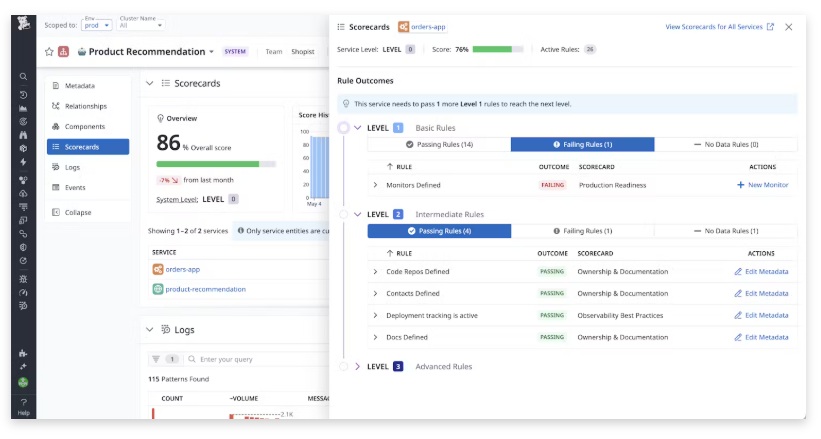Platform Engineering: Datadog defines components of Internal Developer Portal
In line with our platform engineering series, we can make note of monitoring and security platform company Datadog now launching its Internal Developer Portal (IDP) to serve as a portal built on live observability data.
The company suggests that software engineering teams are under pressure to ship while still meeting stricter standards to keep their code reliable and secure… and, of course, compliant with legal, regulatory and company policies.
Developers must navigate requirements including code quality, testing, security scans, infrastructure configurations, observability and compliance. At the same time, they need to understand the systems and services their code depends on, who owns these services and how they’re performing in real time.
As this complexity and cognitive load grow, developers increasingly rely on platform engineers to unblock them, which stretches resources for both teams and slows software delivery across the organisation.
“Datadog IDP builds on its APM product suite to automatically map services and dependencies and bring Datadog’s real-time performance, service ownership and engineering knowledge together in one place. The new product enables developers to build, test, deploy and monitor software with self-service actions and built-in delivery guardrails, while providing platform engineers with scorecards to help them meet reliability, security and monitoring standards,” notes the company, in a technical product statement.
Datadog IDP incident response functions bringing a live, centralised engineering knowledge base into every incident for faster triage, better decision making and improved coordination.
IDP component parts
The software catalogue function is a live system of record showing what software is running, who is responsible for it and how it is performing across an organisation.
This record is automatically synced to live telemetry collected in Datadog, so teams can easily find services, dependencies and their performance metrics, along with critical engineering context such as owners, on-call rotations, source code, runbooks, dashboards and documentation.
In self-service actions, pre-built, pre-approved templates powered by Datadog’s App Builder and Workflow Automation make it quick and easy for developers to accomplish tasks like scaffolding a new service, provisioning infrastructure resources or triggering remediation actions – all done independently while meeting internal requirements.
Scorecards are a set of out-of-the-box and custom pass/fail rules that allow platform engineers and engineering managers to track compliance with reliability, security, observability, cost and other standards across services and teams.
Engineering reports provide visibility into engineering reliability, software delivery performance and compliance with engineering standards, while offering personalised views for developers, team leads and executives.
“Datadog’s IDP brings together both observed and declared system states, as well as existing systems of record. This combination shows not only developer intention but also what is actually in production. Whether developers onboard new teams or are tasked with complex projects such as migrating code from EC2 to Kubernetes, Datadog automatically provides visibility into their systems and reflects changes as they are being made – without stale metadata or manual syncing,” said Michael Whetten, VP of product at Datadog. “Datadog IDP empowers developers to collaborate more effectively and deliver software that meets their organisation’s standards, at the pace that is expected from them.”
The company’s status pages function uses the same ownership metadata populated through IDP to make it easy to communicate incident scope and impact to stakeholders. On-call engineers can now query service owners, recent changes and other critical information hands-free from IDP for faster investigations using a voice interface.
Datadog IDP’s service ownership and other information are available across Datadog’s unified platform.




